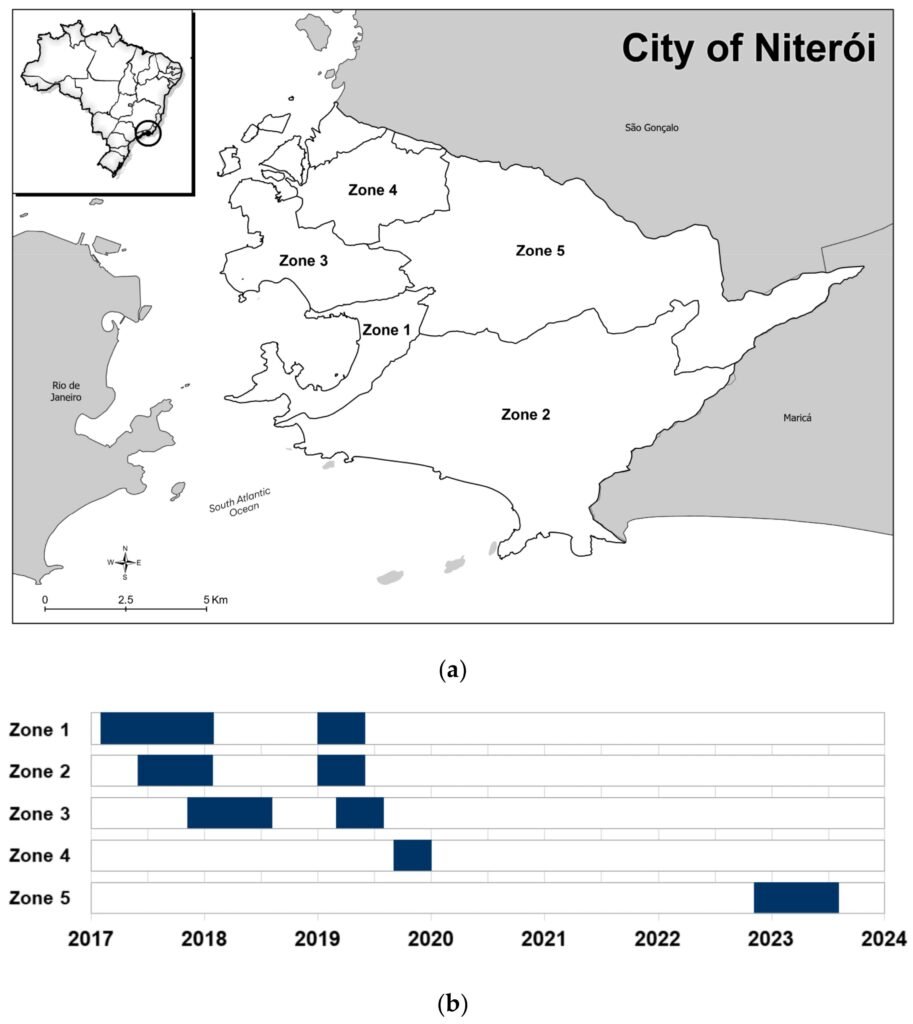Dengue has been a public health concern in tropical regions for many years, and the year 2024 witnessed a significant global surge in dengue cases, with over 14 million reported cases and 10 thousand deaths worldwide. These figures were more than double the number of dengue cases recorded in 2023 and 2019, making it the worst global dengue epidemic on record.
In the midst of this global dengue crisis, the city of Niterói in Brazil stood out as a beacon of success in combating the deadly disease. This success was attributed to an innovative program that introduced a bacterium called Wolbachia into the local mosquito population. Wolbachia reduced the mosquitoes’ ability to transmit dengue, leading to a remarkable 90% decrease in the rate of dengue cases in Niterói.
A study conducted by the World Mosquito Program and researchers at Monash University in Melbourne, Australia, and published in the journal Tropical Medicine and Infectious Diseases, showcased the effectiveness of releasing Wolbachia-infected Aedes aegypti mosquitoes throughout Niterói. Over five years, the majority of Aedes aegypti mosquitoes in the city carried Wolbachia, resulting in an 89% reduction in dengue incidence.
Associate Professor Katherine Anders from Monash University and Professor Luciano Moreira from the World Mosquito Program spearheaded the study, evaluating the long-term public health impact of Wolbachia deployments in Niterói. The study revealed that dengue incidence in Niterói in 2024 was significantly lower than the rates in Rio de Janeiro state and Brazil as a whole, demonstrating the program’s success in preventing dengue outbreaks.
The introduction of Wolbachia into mosquito populations has emerged as a sustainable intervention for dengue control, providing continuous protection to communities. This approach distinguishes itself from traditional insecticide-based methods, which are prone to resistance and challenging to implement in complex urban settings.
Brazil recently inaugurated the world’s largest biofactory, Wolbito do Brasil, dedicated to breeding Wolbachia-infected mosquitoes. This innovative initiative is poised to safeguard an estimated 140 million people in Brazil from dengue fever in the coming years, marking a significant milestone in the fight against mosquito-borne diseases.
The study’s findings underscore the potential of Wolbachia as a powerful tool in dengue prevention and control efforts, offering hope for communities at risk of dengue epidemics. By leveraging innovative strategies like Wolbachia deployment, public health organizations can make significant strides in reducing the impact of mosquito-borne diseases on vulnerable populations.


